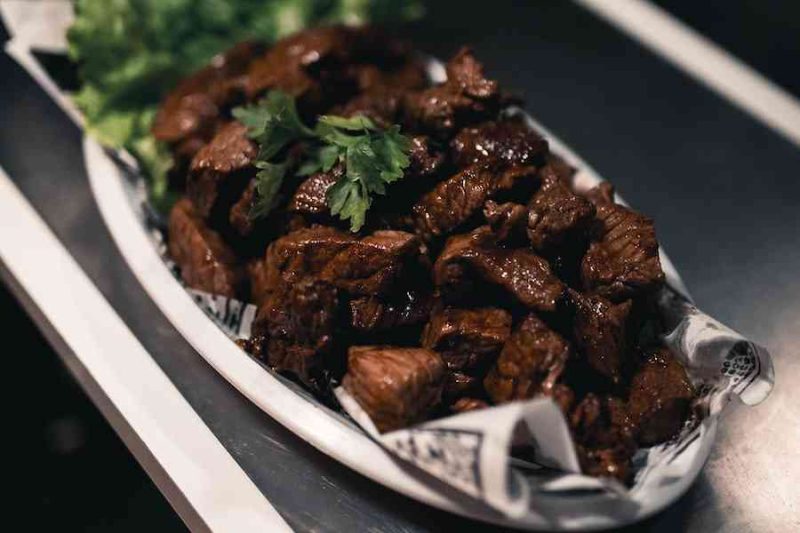The meat we eat plays an important role in our health, especially when it comes to maintaining a healthy heart. Both red and white meat are rich sources of protein and other important nutrients like iron and zinc. But while both beef and lamb are good sources of protein, they have different nutritional profiles. Depending on your personal preferences and dietary needs, one may be healthier than the other. In this blog post, we’ll explore the differences between lamb and beef and help you decide if either is a healthier choice for you.
Is lamb healthier than beef?
Lamb is red meat like beef, pork, and veal. All of these meats are high in protein and nutrients such as iron and zinc. Lamb is lower in saturated fat than beef, but it does contain more cholesterol. So, it’s a personal decision whether to eat lamb or beef. Some people choose lamb because they believe it to be healthier, while others choose beef because they prefer the taste or texture.
What Are The Health Benefits Of Lamb?
1. Lamb is rich in B vitamins
B vitamins are essential nutrients that are needed to maintain good health. The mineral iron is required for the production of red blood cells and hemoglobin. The vitamin B6 helps produce the neurotransmitter serotonin that helps control mood and appetite. Vitamin B12 is a water-soluble vitamin that helps to produce red blood cells, along with folate, which is required for the production of DNA and RNA. The human body can make most of these vitamins, but some are required in small amounts. When you eat food containing these vitamins, your body has enough to function properly without any adverse effects.
2. Lamb is high in iron
Iron is an essential mineral that plays a significant role in ensuring proper oxygen flow throughout the body including the heart and brain. Iron also supports healthy immune system functioning and energy levels by carrying oxygen throughout your body’s tissues and organs, including mitochondria (the energy-producing centers in cells). As a result, iron is essential for the production of red blood cells, as well as hemoglobin, a protein that transports oxygen throughout the body.
3. Lamb is rich in zinc
Zinc is an essential mineral that plays a significant role in over 300 enzyme reactions in the body. Deficiencies can cause fatigue, poor appetite, and growth problems in children. The mineral copper is required for the production of hemoglobin, which is responsible for transporting oxygen to all parts of the body including your muscles and brain. Zinc also supports healthy immune system functioning by helping to maintain healthy skin and mucous membranes such as those found around your nose and eyes. Zinc deficiency can also cause a lowered resistance to infection and increased susceptibility to illness.
4. Lamb has more B6 than beef
B vitamins are important when it comes to maintaining good health because they help produce energy from food through biochemical reactions within the body’s cells. A deficiency in B vitamins can result in the production of enzymes that break down carbohydrates and fats, which are required for the production of energy.
5. Lamb is high in protein
Protein is an essential nutrient that plays a significant role in maintaining the integrity of our cells, tissues, and organs. Protein is required for the production of enzymes that break down carbohydrates and fats, which are required for the production of energy. The human body can make most of these proteins, but some are required in small amounts. When we eat food containing protein, our body has enough to function properly without any adverse effects.
Is lamb healthier than beef?
1. Lamb is leaner than beef
The quality of the meat you eat can have a big impact on your health. While lamb is rich in protein, it’s also low in fat and calories. In fact, lamb is one of the leanest cuts of meat. The fat content in lamb varies according to the cut you buy. The shoulder, leg, and loin are all leaner than the belly, which has a higher fat content.
2. Lamb has less saturated fat than beef
Saturated fats are solid at room temperature and come from animal fats or plant oils that have been processed by heating them to high temperatures (such as frying). Saturated fats have been linked to an increased risk of heart disease as they raise levels of LDL cholesterol in the blood.
Lamb has a lower saturated fat content than beef. The fat content varies depending on the cut you buy. Lamb shoulder and leg are leaner than lamb loin and rib. While lamb loin, rib, and sirloin have a higher saturated fat content than the shoulder and leg, they still have less saturated fat compared to beef.
3. Lamb is rich in zinc, iron, and selenium
While both beef and lamb are good sources of protein, they each have different nutritional profiles. Depending on your personal preferences and dietary needs, one may be healthier than the other for you to eat regularly. In this blog post, we’ll explore the differences between lamb and beef and help you decide if either is a healthier choice for you to eat regularly.
What are some of the health risks associated with eating lamb?
1. Lamb is a source of carotenoids
Lamb is a rich source of carotenoids, which are pigments that give various fruits and vegetables their yellow or orange color. Carotenoids are important for maintaining the health of our eyes, skin, and other tissues in our body. In fact, research suggests that carotenoids can help protect against cancer and cardiovascular disease. Carotenoids are also important for immune function, as they have been shown to boost the production of antibodies in the body.
2. Lamb is a good source of omega-3 fatty acids
Omega-3 fatty acids are polyunsaturated fats commonly found in fish and certain plants like flaxseeds (linseed). They’re considered essential fatty acids because the human body can’t produce them on its own, but they play an important role in maintaining heart health by reducing inflammation and helping to prevent cardiovascular disease (CVD). Omega-3 fatty acids are also important for brain and nervous system development, as well as for the maintenance of normal vision.
3. Lamb is a good source of vitamin B12
Vitamin B12 is an important part of maintaining normal red blood cell production and healthy nervous system function. It also plays an important role in the formation of DNA, which helps protect against cancer and other diseases. Studies show that vitamin B12 deficiency can lead to a wide range of health problems including fatigue, weakness, depression, memory loss, and dementia.
How does lamb compare to other types of meat in terms of nutritional value?
1. Lamb is a rich source of high-quality protein, iron, zinc, and B vitamins
Lamb serves as a great source of protein since it contains more than double the amount of protein found in beef. Lamb also contains a good amount of iron, zinc, and B vitamins. On the other hand, lamb has less fat and cholesterol than beef.
2. Lamb is a good source of omega-3 fatty acids (EPA+DHA)
Lamb contains two types of omega-3 fatty acids (EPA+DHA) which are essential to our health. They play an important role in the proper functioning of our brains, nerves, and cardiovascular systems. While they are found in fish oil supplements, they are not present in red meat like lamb or beef. However, consuming more fish oil-rich foods like salmon or tuna may help you get more omega-3s from red meat as well as other sources like flaxseed and walnuts.
3. Lamb contains less saturated fat and cholesterol than beef
Both lamb and beef contain about the same amount of saturated fat, but lamb has 15% less saturated fat than beef. On the other hand, lamb has similar amounts of cholesterol to beef.
4. Lamb is a good source of vitamin B12
Lamb is a good source of vitamin B12 which is essential for preventing anemia (a condition where your body does not have enough red blood cells). It also plays a role in maintaining healthy nerves and brain cells. Beef, on the other hand, is a good source of vitamin B12 but it is not as rich as lamb in this nutrient due to its higher levels of saturated fat and cholesterol.
Conclusion
The meat we eat plays an important role in our health, especially when it comes to maintaining a healthy heart. Both red and white meat are rich sources of protein and other important nutrients like iron and zinc. But while both beef and lamb are good sources of protein, they have different nutritional profiles. Depending on your personal preferences and dietary needs, one may be healthier than the other. In this article, we explored the differences between lamb and beef, and help you decide if either is a healthier choice for you.










